Introduction
Islam is a simple, straight and practical religion. There is no official clergy as in Judaism, Christianity and other religions, who maintain a strong hold on the scriptures and books and only their interpretation is considered as final. Many important matters are tackled by clergy without sufficient explanation from scriptures as if they possess some secret knowledge or have communication with God, the angels or Holy Ghost (in Christianity) which cannot be verified or challenged. Islam has closed such possibility by closing the revelations with the last Prophet (Pbuh). However, the huge hadith literature can be used to justify some innovations. Hadiths cannot be authenticated without a test with the final Criteria (Al-Furqan), the Holy Quran. However, by disregarding this litmus test, the hadith literature can be used and has been used to justify some Bid’a (Deviations). If somehow the level of hadith is raised as a scripture equal or near to the Quran, then it’s easy to silence those questioning new additions/ interpretations. So, the terminology, ‘Wahi Kiffi’, secret or hidden revelation, not found in Quran or any hadith literature have been added. The scholars formulated this terminology through interpolation and deductions from Quranic verses 53:3[1] 2:62[119], Hikmah (Wisdom, as Sunnah, thus Divine Revelation, 33:34, 59:7 checkout 8:41) in clear violation of Quran 3:7[120], which requires to use clear command verses, which are the essence (mother) of Book of Allah on important matters. Allah says:
It is He who sent down upon thee the Book, where in are verses clear that are the Essence of the Book, and others ambiguous. As for those in whose hearts is swerving, they follow the ambiguous part, desiring dissension and desiring its interpretation; and none knows its interpretation, save only God. And those firmly rooted in knowledge say, ‘We believe in it; all is from our Lord’; yet none remembers, but men possessed of minds.” (Quran 3:7, Arberry translation)
Singularity of Revelations is clear, the Doctrine of Duality of Revelations is a fundamental issue. Such an important doctrine cannot be established through distortion, interpretation of ambiguous out of context words with multiple meanings.[121 There has to be an unambiguous command verse (آيَاتٌ مُّحْكَمَاتٌ) from the Quran, which is not the case.
Sunnah of the Prophet (Pbuh) and Four Caliphs
Besides the Quran and commands of the Prophet (Pbuh), these scholars also ignored Caliph Umar’s and (other Caliph’s) ban on hadith writing, as if they were unaware of the duality of Revelations like Abu Bakr Siddique, Usman and Ali (رضي الله عنهم) who did not make arrangements for preservation of Hadiths, rather opposed it following the Quran (6:19, 38, & 114-116, 39:23, 45:6, 77:50 , 7:185) and Prophet Muhammad(Pbuh) who said:
“Do not take down anything from me, and he who took down anything from me except the Qur’an, he should efface that and narrate from me, for there is no harm in it and he who attributed any falsehood to me deliberately he should in fact find his abode in the Hell-Fire.[2]
Do not write anything I say but the Quran and whoever writes anything but the Quran should delete it.”[3]
Hence according to the Quran, Prophet Muhammad(Pbuh), the Four Rightly Guided Caliphs and companions there is no place for any other Book or Scripture except Quran. This is also one of the articles of Islamic Faith, to believe in the Quran, the last book of guidance.[4] Muslim Faith does not require to believe in any book except Quran and early Books of Allah given to Messengers and Prophets. The books written in the 2nd and 3rd century Hijrah disregard the One book policy by the Quran, Prophet Muhammad (Pbuh), Four Rightly Guided Caliphs, the policy followed by companions and followers during next centuries. There is a need to rectify this error.

Prophet (Pbuh) Commanded to Follow Quran
The Quran requires Prophet Muhammad(Pbuh) to only follow what was revealed to him in the Quran:
And when Our verses are recited to them as clear evidence, those who do not expect the meeting with Us say, “Bring us a Qur’an other than this or change it.” Say, [O Muhammad], “It is not for me to change it on my own accord. I only follow what is revealed to me. (Quran; 10:15)
Say (O’ Muhammad), “I am not something original among the messengers, nor do I know what will be done with me or with you. I only follow what is revealed to me, and I am not but a clear warner.” (Quran; 46:9)
Say, [O Muhammad], “I do not tell you that I have the depositories [containing the provision] of Allah or that I know the unseen, nor do I tell you that I am an angel. I only follow what is revealed to me.” Say, “Is the blind equivalent to the seeing? Then will you not give thought?” (6:50)
And when you, [O Muhammad], do not bring them a sign, they say, “Why have you not contrived it?” Say, “I only follow what is revealed to me from my Lord. This [Qur’an] is enlightenment from your Lord and guidance and mercy for a people who believe.” (7:203)[5]
What was revealed to Muhammad(Pbuh) was the Quran. This is proven in 6:19. There is no proof anywhere that indicates that the sayings (hadith) of the Prophet Muhammad (Pbuh) besides what is in the Quran are a revelation from God.
this Qur’an was revealed to me that I may warn you thereby and whomever it reaches (Quran 6:19 part)
“Hadith Books” not Required, Quran, Sunnah & Oral Hadiths Adequate
If the hadiths of the Prophet Muhammad(Pbuh) were so important that it had to be followed just like the Quran, then special arrangements for their preservation were needed, but the Prophet (Pbuh) banned hadith book writing, as already explained. Even after the Prophet (Pbuh) had passed away, none of his companions made any effort to preserve the hadiths. What they preserved was only the Quran. The Prophet (Pbuh) left nothing except the Quran because the Prophet and Muslims are only allowed to follow the Quran. Other sources (hadiths) are only acceptable if they are subservient to the Quran and according to the criteria[6] laid down by the Prophet (Pbuh) [7] mentioned above[8].
There is an Al-Bukhari hadith that states that the Prophet didn’t leave anything for his people except the Quran. (al-Bukhari Book 66, Hadith 41)[9]
Anyone seeking guidance from other than Quran will be misguided (Muslim 6227, Tirmidhi 2906)[10]
Pious people are found to lie in hadiths. [Muslim 40][11]
The verses and hadiths mentioned above make it clear that Prophet Muhammad (Pbuh) himself only followed what was revealed to him. The Quranic verse 7:203 and 6:19 also make it clear that what was revealed to him was the Quran.[12]
Does not Speak of Own Desire [53:3]
As the time passes the knowledge and information transferred orally from one person to another gets rusty, the distortions creep in to make things hazy. However the Quran remains a protected book of Allah, free from any distortion or corruption. The Prophet (Pbuh) did not leave anything but the Quran and repeatedly asked the people to follow the Quran so that they don’t get misguided or fall astray, he even forbade making a book of his hadith, so that people should not undermine or abandon the book of Allah (Quran) like the Jews and Christians. Later effort has been made to justify hadith books [collection of sayings of the Prophet (Pbuh) by raising them to the level of Wahi (Revelations).
It is strange that the Messenger (Pbuh) seems to be unaware of this “information” (Secret Wahi) when he prohibited Abu Hurairah to write hadiths and he burnt them immediately. The closest companions and Caliphs were also not in the knowledge of this information of “Secret Wahi”, while prohibiting Hadith writing and Hadith burning[13].
To support the theory of Secret Wahi (kiffi), the proponents of hadith books, picked up a verse from Quran:
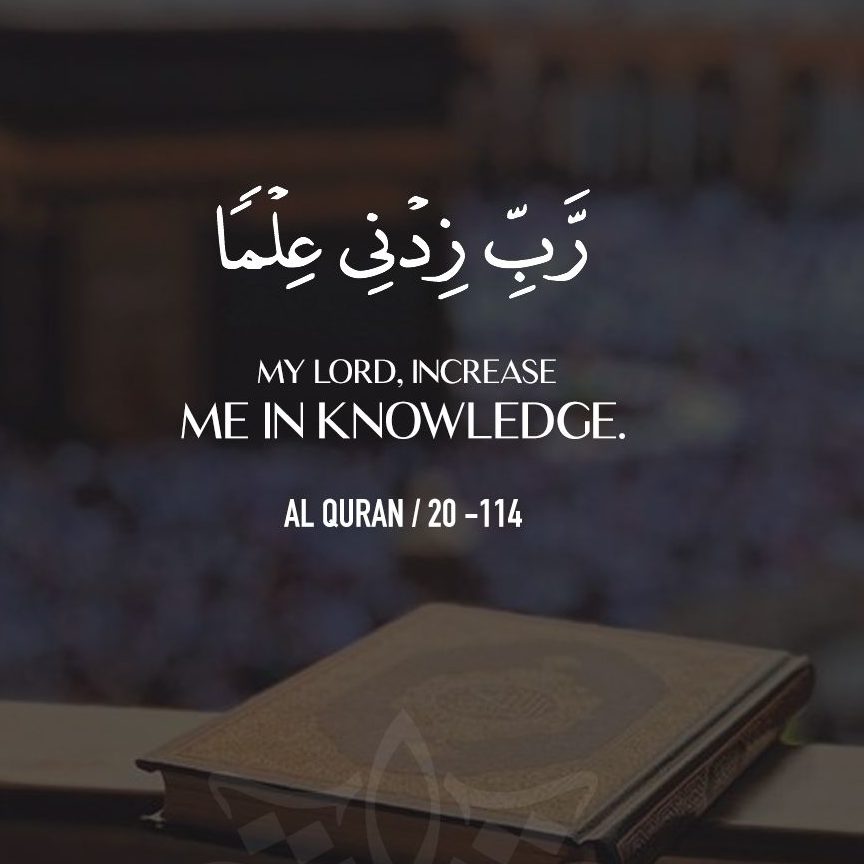
“Nor does he utter the Word out of his desire” [Quran; 53:3][14]
Allah has closed the doors of deviation and confusion, He has laid down clear instructions about Commandments and Statutes through clear unambiguous verses:
It is He who has sent down to you, [O Muhammad], the Book; in it are verses [that are] precise they are the foundation of the Book and others unspecific. As for those in whose hearts is deviation [from truth], they will follow that of it which is unspecific, seeking discord and seeking an interpretation [suitable to them] [Quran:3:7 part][15]
It is interpreted from this verse that “every word spoken” by the Prophet (Pbuh) is Revelation (Wahi), the manifest revelation is recited (Matloo) recorded in Quran and Wahi Khiffi (secret revelation) is Hadith and Sunnah. This is a newly invented interpretation of 2nd century Hijrah by the “visionary scholars” because they wanted to write Hadith books which was prohibited by the Quran, the Prophet (Pbuh), the Caliphs and companions, so the justification has to be strong and big.
It is known that nothing happens in this world without the consent and knowledge of Allah.
While it is God Who has created you and all that you do?” [Quran 37:96][16]
With Him are the keys to all secrets; none knows them except He. He knows everything on land and in the sea. Not a leaf falls without His knowledge. Nor is there a grain in the depths of the soil. Nor is there anything wet or dry, that is not recorded in a profound record.[Quran;6:59][17]
Everything happens with the knowledge and will of Allah, so for the Messenger (Pbuh), his acts related with guidance of humanity are obviously the work of God.
Now let’s see the verse 53:3, in context:
- Your honored companion is neither in error, nor is he misled. [53:2]
- Nor does he utter the Word out of his desire [53:3]
- This (Qur’an) is but a Revelation that is being revealed to him [53:4]
- He has been taught by the One Mighty in Powers [53:5]
- The Owner of Authority and Wisdom established him (the Prophet) [53:6][18]
The verse 53:4, 5 & 6 clarify that this “Nor does he utter the Word out of his desire” [53:3] is about the Quran being revealed to him through Mighty Power.
The verse means that: “The things for which you (polytheists) accuse him of having gone astray or been misled and deceived, have neither been fabricated by himself nor motivated by any selfish desire on his part, but they have been sent down, and are being sent down, to him by God. He did not intend to become a Prophet of his own desire so that he might have laid a claim to Prophethood in order to satisfy his desire, but when Allah appointed him to that office through Revelation, then only did he rise to preach his mission and to tell you that he had been appointed God’s Messenger to you. Likewise, this invitation to Islam, this teaching of the doctrine of Tauhid (monotheism), this news about the gathering together of all mankind on the Day of Resurrection and their accountability, the truths that he is presenting about the Universe and Man and the principles of leading a pure life, are not a philosophy propounded by himself, but the knowledge of all this has been bestowed on him by Revelation. Likewise, this Qur’an that he recites before you, is also not of his own composition but it is Divine Word which is sent down to him by Revelation.”
Here, the question arises: To which of the words spoken by the Holy Prophet do Allah’s Words: “He does not speak of his own desire; it is only a Revelation which is sent down to him,” apply?
Do they apply to everything that he spoke, or to the sonic of his words and not to others?
The answer is: As far as the Qur’an is concerned, the Divine Words apply to it most completely. As for the other words, apart from the Qur’an, which the Holy Prophet (Pbuh) spoke, they could inevitably be of three kinds:
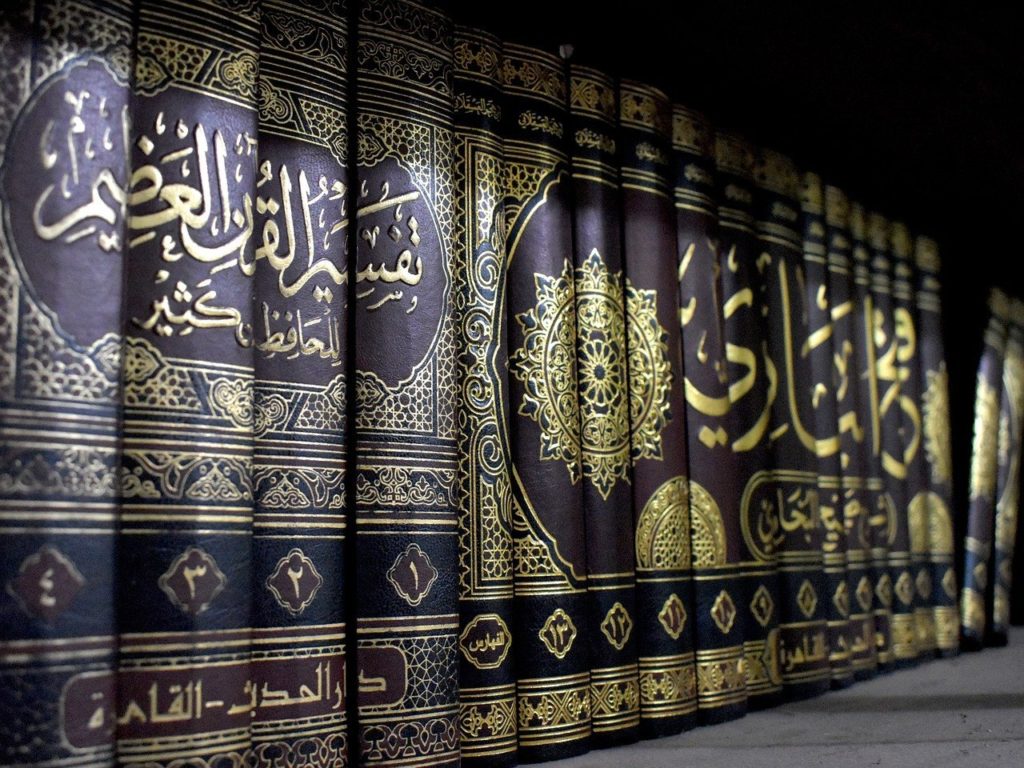
1.Knowledge from God
First, those words which he employed for preaching religion and inviting others to Allah, and for explaining the themes, teachings and commands of the Qur’an, or for giving admonition and instruction to the people to fulfill the object for which the Qur’an was revealed. In this regard, obviously nobody can have the doubt that, God forbid, he fabricated these things from his own mind. In these matters, his position, in fact, was of the official interpreter of the Qur’an and of Allah’s authorized representative. Although these things were not revealed to him literally as the Qur’an was revealed; yet these were necessarily based on the knowledge from God. Narrated Ibn `Umar: I heard Allah’s Apostle saying,
“While I was sleeping, I was given a bowl full of milk (in a dream), and I drank of it to my fill until I noticed its wetness coming out of my nails, and then I gave the rest of it to `Umar.” They (the people) asked, “What have you interpreted (about the dream)? O Allah’s Apostle?” He said, “(It is Religious) knowledge.” [Bukhari,7006[19] Muslim 6190]
2. Personal Opinion
The second kind of the words were those which the Holy Prophet spoke in connection with the struggle of raising Allah’s Word and his services for establishing Islam. In this regard, he had to perform countless duties of different kinds as the leader and guide of the Muslim community. In this many a time he took counsel with his Companions as well, and followed their advice instead of his own view. On being asked he sometimes told them that he was expressing a particular view not under Allah’s command but as his personal opinion, and on several occasions, it so happened that he said something on the basis of his own opinion and later. an instruction came down against it from Allah. Hence it proves that applying the [53:3] literally on every word uttered by the Prophet (Pbuh) is not correct, rather it pertains to the Divine revelations, the Quran as clarified in next verses (53:4-6).
3. Truthful even in Casual Mood
The third kind is entirely private or personal matter; however he always talked the Haqq, Truth even while joking or in anger. Sayyidina Abu Hurairah (RA) narrated, we said,
“O Messenger of Allah, you joke with us.” He said, “I do not speak but the truth (haq).”[Ahmed 7831[20], Tirmidhi 1990[21]]
The word “Haq” (Truth) is not synonymous with ‘Wahi’ (Revelations). The Prophet (Pbuh) always talked the Truth (Haqq) even before revelations he was known as Sadiq and Ameen [Truthful and Trustworthy]. Wahi is Haq/ Truth but every Haq/ Truth is not Wahi/ Revelation. Playing with words to confuse the matter to draw desired meaning is misleading.
Linguistic Aspects, Lexicon
Some important aspects form Arabic lexicon:
Verse 53:4 have the words: “Inn huwa ila wahyun yuha” 53:4. These words translate to: “it is but an inspiration being inspired.” The word “huwa” (it) is a keyword in this verse. The word ‘it’ in English does not denote a gender. The word ‘it’ could refer to a masculine or a feminine noun equally. However, in Arabic the word “huwa” refers to the masculine, while the word ‘hiya’ refers to the feminine. The word “huwa” in this verse refers to the Quran which is masculine in gender.[22]
What this means is that in this verse, God is specifically speaking about the inspiration of the Quran to Muhammad (Pbuh). God is not speaking about every word uttered by Muhammad (Pbuh)!
We have in the following Quranic words clear evidence that the revelation mentioned in 53:3 is the Quran and nothing else:

Say (O Muhammad), “What thing is the greatest testimony?” Say, “God is Witness between me and you, and this Quran has been revealed to me to warn you with it and whomever it reaches. Do you bear witness that there are other gods besides God?” Say, “I do not bear witness”. Say, “He is but One God and I am innocent of the shirk that you commit.” (Quran;6:19)[23]
The words above leaves the reader in no doubt regarding what was revealed to Prophet Muhammad (Pbuh). We do not see mention of any[24] revelation in this verse other than the Quran. Is it conceivable that Prophet (Pbuh) Muhammad’s hadith was a revelation from God, yet God instructs him to make a testimony that only the Quran was revealed to him from God? Considering that God called this “the greatest testimony”, could it be that “the greatest testimony” is an incomplete testimony?
In verses 69:44–46, God threatened to kill Prophet Muhammad (Pbuh) if Muhammad (Pbuh) ever made false statements about God. This proves that not everything Prophet Muhammad (Pbuh) said was a revelation from God since if everything was, God would not have needed to make this threat.
And if Muhammad had made up about Us some [false] sayings, We would have seized him by the right hand; Then We would have cut from him the aorta. (Quran;69:44–46)
The verse above makes it very clear that not everything Prophet Muhammad (Pbuh) said was a revelation from God. Since Muhammad (Pbuh) only follows what was revealed to him (10:15, 46:9, 6:50, 7:203) and that what was revealed to him was only the Quran (7:203), then Muslims must follow the Quran and never abandon it.
this Qur’an was revealed to me that I may warn you thereby and whomever it reaches (Quran;6:19)[25]
The verses above make it very clear that Prophet Muhammad (Pbuh) had the very important task to deliver the Quran.
We are most knowing of what they say, and you are not over them a tyrant (forceful leader). Therefore remind by the Qur’an whoever fears My threat. (Quran; 50:45)
These verses make it clear that Prophet Muhammad (Pbuh) guided people primarily based on Wahi i.e. Quran and extra knowledge from God. There is no secret Wahi.
The words “inn huwa ila’ (it is but) that are the subject of our inquiry, and which are found in 53:4, are repeated letter for letter in 36:69:
We did not teach him poetry nor was it required of him; ‘inn huwa’ (it is) but a Reminder and a clear (Quran. 36:69)[26]
In 36:69, the words continue to say “a Reminder and a clear Quran” thereby providing indisputable evidence that the word “huwa” (it) refers to the Quran and nothing else.
In 53:3, God states: “Nor does he (Muhammad) speak out of personal desire.”
When we read the Quran, we can pinpoint the reason for the words above.
When Prophet Muhammad (Pbuh) started receiving the Quranic revelation and started to recite it to his people, the skeptics hurled a number of accusations at him. They called him a “crazy poet” and they also said “he fabricated it”:
And they used to say, “Are we to abandon our gods for a crazy poet?” (Quran;37:36)
Or do they say,
“He fabricated it”? Say, “If I fabricated it, then I am responsible for my crime and I am innocent of any crime you commit.” (Quran;11:35)
In reply, God says:
It (Quran) is not the utterance of a poet. (Quran;69:41)
This (Quran) is not a fabricated hadith. (Quran;12:111)
And hence, in 53:3 God asserts that:
Nor does he (Muhammad) speak out of personal desire”. (Quran;53:3)
The words in 53:3 are in defence of the Quranic words coming out of Muhammad’s (Pbuh) mouth and not a defence of his personal hadith.
Prophet (Pbuh) Judging on Opinion not Wahi
Umm Salamah (may Allah be pleased with her) reported the Prophet ﷺ as saying when two men were disputing over inheritance and old things: I decide between you on the basis of my opinion in cases about which no revelation has been sent down to me. [Abu Dawud Hadith: 3585][27]
Narrated Um Salama (RA): The Prophet (Pbuh) heard the voices of some people quarreling near his gate, so he went to them and said,
“I am only a human being and litigants with cases of disputes come to me, and maybe one of them presents his case eloquently in a more convincing and impressive way than the other, and I give my verdict in his favor thinking he is truthful. So if I give a Muslims right to another (by mistake), then that (property) is a piece of Fire, which is up to him to take it or leave it.” (Abu Dawud 3583,[28] Saheeh Bukhari 7185, See Hadith No. 281 )
Sayyidah Umm Salamah (RA) reported that Allah’s Messenger (Pbuh) said:
“You bring your disputes to me (to judge between you) while I am only a human being. And, perhaps, some of you may be more eloquent in their arguments than others. So, if I decide for one of you (giving him) even a little bit of the right of his brother then I am only cutting out for him a piece of the fire, hence, let him not take anything of it.” [Muslim:1713][29]
Rafi bin Khadij reported that Allah’s Messenger (Pbuh) came to Madinah and the people had been grafting the trees. He said:
What are you doing? They said: We are grafting them, whereupon he said: It may perhaps be good for you if you do not do that, so they abandoned this practice (and the date-palms) began to yield less fruit. They made a mention of it (to the Holy Prophet), whereupon he said: I am a human being, so when I command you about a thing pertaining to religion, do accept it, and when I command you about a thing out of my personal opinion, keep it in mind that I am a human being. Ikrima reported that he said something like this. [Saheeh Muslim 6127[30]]
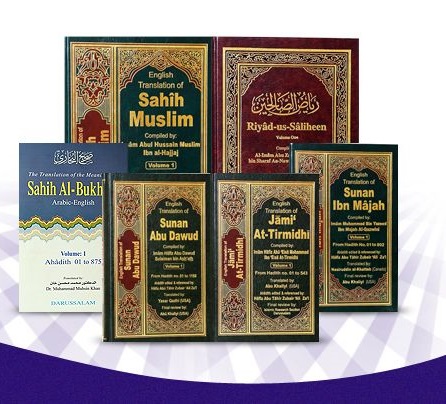
Prophet (Pbuh) Prohibited Hadith Book Making
Any genuine believer in the Quran would always accept the Quranic evidence as the only absolute uncorrupted truth. However, many Muslims sadly place the hadith above the Quran. This being the case, let us show here what the hadiths says about the Prophet (Pbuh) forbidding the writing of his own hadith:
o “The prophet said: “Do not write down anything from me except the Quran. Whoever wrote other than that should delete it.” [Sahih Muslim, Book 42, Number 7147, also Ahmed, Vol. 1, Page 171]
o Abu Huraira said that the prophet said, “The ‘Ummam’ (nations/peoples) that preceded you have gone astray when they wrote books and upheld them besides God’s Scripture” (Ahmed Ibn Hanbal).
o “Abu Huraira said: The messenger of God came to us while we were writing his sayings and said: “What is it you are writing?” we said “sayings (hadith) we hear from you messenger of God” he said, “A book other than God’s book?” then Abu Huraira said, “so we gathered what we had written and burnt it all” (Taqyeed Al-Ilm, by Al-Khateeb Al-Baghdady) also (Oloom Al-Hadith, by Ibn Salah).
The question that arises after reading such words from the Prophet (Pbuh), is whether the Prophet (Pbuh) regarded his personal words to be revelation, or in any way divinely inspired? The fact that the Prophet (Pbuh) forbade his followers from writing down his sayings and personal words, confirms that he did not regard these to be divinely inspired and that he regarded the Quran to be the only inspired revelation.
To counter this strong argument, the hadith scholars explain that it is true that the Prophet (Pbuh) prohibited the writing of his own hadith, but they quickly add that this command only applied to the very early years of the revelation! They explain that the Prophet (Pbuh) gave such instructions because the Quran was in its early days of revelation and that the Prophet (Pbuh) was worried that his own sayings would be mixed with the Quran! This is a blatant lie on Prophet (Pbuh), there is no reference or even weak or concocted or false Hadith to support this claim.
Hell Fire for Lying on Prophet (Pbuh)
Narrated Abu Bakr bin Abi Shaybah that Muhammad ibn Muthanna and the son of Bashar said Muhammad ibn Jaafar told of the Mansour, Rabi bin Hrash heard that, he, Allah be pleased with him, said the Messenger of Allah (Pbuh) said:
“Do not lie on me, for whoever lies on me will enter Hell-fire”. [Saheeh Muslim Hadith:2][31]
This most important hadith is Mutawatir[32] which is narrated by 62 narrators continuously and independently, hence it is closest to the Quran and there is consensus that denying it is Kufr.

The False Claim is Exposed by Historic Facts:
1- When the revelation first started coming to the Prophet (Pbuh) he was in Mecca. This continued for thirteen years before he immigrated to Medina. During these 13 difficult years, documenting what the messenger said in conversation was not an issue of prime matter. The believers at the time, who were still a small persecuted minority, were more concerned with securing their personal safety and the safety of the Prophet (Pbuh). The short parts of the Quran were memorized and also written down on revelations.
According to historic records, the prohibition by the Prophet (Pbuh) to write his sayings took place in Medina around the seventh year A.H. which would be 21 years after the beginning of the revelation. Abu Hurairah joined Muslims in 7 / 8 Hijrah, who narrated the Hadith writing prohibition and burning. This clearly negates the false claim.
It follows that the claim that the prohibition applied only to the early days of the Quranic revelation becomes invalid, simply because the prohibition by the Prophet (Pbuh) was not issued in the early days of the revelation, but after 21 years.
2- When we analyze the claim that the prohibition was meant only for the early days, so that it would not be mixed up with the Quran, we note another serious problem. In Sura 15, verse 9 we read that God gives a promise to preserve the Quran against all corruption. Sura 15 is a Meccan Sura, and thus it was revealed before the immigration to Medina and the subsequent prohibition of writing the hadith.
The pressing question here is:
Did Prophet Muhammad (Pbuh) not trust in God’s promise, and indeed ability, to preserve the Quran? If Prophet Muhammad (Pbuh) did believe God’s promise, which is what we expect a Prophet would do, would he still be worried that his own hadith would be mixed up or confused with God’s revelation, which was preserved by God?
3. Four Rightly Guided Caliphs Maintain Hadith Book Ban
The claim that the prohibition by the Prophet (Pbuh) concerned only the early days of the Quranic revelation does not explain why all the four Khulafa Al-Rashideen (Abu Bakr, Omar, Osman and Ali, may Allah be pleased with them) all maintained the prohibition after the death of the Prophet (Pbuh) and allowed no one to write any hadith book, nor made any arrangements to preserve them through book.[33]
(1) The mother of believers, Sayedah Aisha (one of the wives of the prophet) said that her father (Abu Bakr) gathered 500 hadith from people and burnt them all. (Tazkerat Al-Hafez Al-Zahaby part 1, page 5).
(2) Orwa Ibn Al-Zubair said that Omar prohibited the writing of any hadith from the Prophet (Pbuh) and declared “There shall be no book besides God’s Book” (Ga’ me Bayan Al-ilm, part 1, page 65).
(3) Both Abu Bakr and Omar (R.A) used to advise the people to avoid telling tales about the Prophet (Pbuh). In one of his speeches, Abu Bakr addressed the people saying: “you tell stories about the prophet and you dispute among one another in the details. The people who will come after you will undoubtedly dispute even more, therefore do not tell any tales about the prophet. If you should be asked, say between us and you is God’s Book, therefore make halal (lawful) what is halal in the Book and prohibit what is prohibited therein.” (Tazkerat Al-Hafez Al-Zahaby).
(4) When Osman (R.A) became the ruler he maintained the prohibition. The same continued under the leadership of Ali. In one of his speeches Ali (R.A) said: “I urge any of you who possesses any writings about the prophet to destroy it, verily, the people went astray before you when they upheld the teachings of their scholars and abandoned God’s Book” (Sunann Al-Darami).
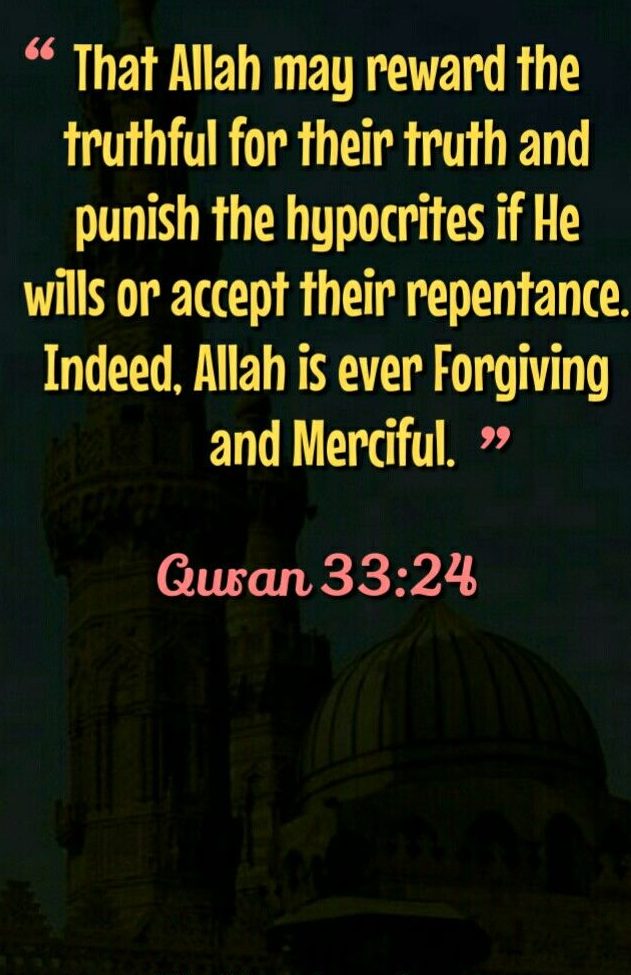
(5) The prohibition of writing the hadith stood for a period of two centuries after Hijra. Among the six famous hadith collections[34] We have today, labeled ‘sahih’ (authentic), which is Bukhari’s collection. Bukhari was first to be born out of the six collectors, in the year 194 A.H. and his collection was the first to be documented of the six. Once again, this confirms that the prohibition to write hadith continued long after the Prophet (Pbuh) passed away.
Prophet (Pbuh) Laid Down Criteria for Hadith
The Prophet (Pbuh) in his criteria[35] for hadith to be narrated, memorized, no book made hadith subservient to Quran, Sunnah and Intellect[36]. How can Revelations from God be made subservient to the intellect of people? Obviously, hadiths were not revelation from God.
Contradictions
To claim that all words spoken by the Prophet (Pbuh) were divinely inspired does not explain why we find numerous contradictions between one hadith and another, and also between hadith and many Quranic verses? Would God inspire His Messenger with contradictions?
“Then do they not reflect upon the Qur’an? If it had been from [any] other than Allah, they would have found within it much contradiction” (Quran; 4:82).[37]
The Prophet (Pbuh) made it very clear once he laid down the criteria for acceptance or rejection of Hadiths, which include that Hadith cannot contradict or abrogate Quran verses but Quran can abrogate Hadiths[38]. But the scholars ignored the Hadiths Criteria (7 Principles) and only followed one, i.e. the chain of narrators.
From the above examples it becomes evident that the claim that whatever the Prophet (Pbuh) uttered was inspired by God, is utterly false. How can the Prophet (Pbuh) be inspired in all he uttered when it is full of contradictions? How can the fabricated lies ever be attributed to the Prophet (Pbuh)? How can Muslims be coerced to believe the tales that contradict the Quranic truth?
The Infallibility
We are told in the Quran that the messenger of God is infallible in the message he delivers but that he is fallible in his own personal words:
Say (O Muhammad), “If I stray, I stray to my own loss, and if I am guided, it is by what my Lord inspires to me. He is Hearer, Near.” (Quran; 34:50)
What the words “If I stray, I stray to my own loss” tell us is that there were times when the prophet was not inspired by God, and thus could be corrected by God. They also tell us that he was only guided by means of what God inspired him. If every word the prophet uttered was inspired by God, then the selected sentence would make little sense!
Further confirmation that not every word uttered by Muhammad (Pbuh) was divine inspiration is in the fact that God politely reprimanded Muhammad on six different occasions. These are found in (8:67-68, 9:43, 9:113-114, 33:37, 66:1 and 80:1-11). Clearly, if everything uttered by the Prophet (Pbuh) was inspired by God he would not have been corrected on any of these occasions. Surely, God would not inspire the Prophet (Pbuh) to make errors and then reprimand him for committing them!
“That Allah may forgive you your sins of the past and the future, and complete His Favor on you, and guide you on the Straight Path” (Quran;48:2)[39]
We must also understand that God does not include these six cases of reprimand[40] for the sake of belittling His own messenger[41]. God includes these incidents in the Quran so that the reader would be alerted to the fact that Muhammad (Pbuh) was human. Sadly, the ones who are intent on idolising Muhammad (Pbuh) cannot understand the wisdom of these Quranic verses!
Say, “I am only a man like you, to whom has been revealed that your god is one God. So whoever would hope for the meeting with his Lord let him do righteous work and not associate in the worship of his Lord anyone.”(Quran;18:110)
Hadith: “Only What Allah desires”
A man said to the Prophet (Pbuh): “Whatever Allah wills and whatever you will (that is what happens). He said: Do you associate me with Allah? (Not so, but say that) what Allah alone wants (is what happens).[42]
Ignoring Difference between Revelation, Inspiration & Knowledge
It has also been claimed that Prophet Muhammad (Pbuh) received other revelations from God besides the Quran. Among the cases they put forward is the information the Prophet (Pbuh) received about one of his wives (66:3)[43]. They state that the details of this information are not given in the Quran and therefore this proves that Muhammad (Pbuh) received other revelations from God besides the Quran.
The error in this understanding is obvious. What they are confusing here is the difference between inspiration, revelation and knowledge.
A revelation is a scripture given to various prophets to deliver to their people. However, there can also be personal inspiration that is given to any person, messengers and ordinary people alike. This inspiration is totally different from a revelation. No doubt, just like all other messengers of God, Muhammad (Pbuh) received various pieces of inspiration in connection to various incidents and events. Moreover he was also given special knowledge [44] as narrated in a [Bukhari,7006، Muslim 6190] [45]. So these three things must be differentiated.
As mentioned, inspiration from God can be given to any human and not just the messengers of God.
We read in 28:7 that God “inspired” the mother of Moses to throw her baby into the river and not to fear. The mother of Moses was not a messenger, what she received from God was inspiration but not revelation.[46]
Similarly, when God inspired various pieces of personal information to Muhammad (Pbuh) they were meant for his own benefit (not revelation). When God informed Muhammad (Pbuh) of what his wives said (66:3), which he had no way of knowing if God had not told him, this was inspiration, not revelation. This kind of inspired information was for the personal benefit of Muhammad (Pbuh). The Quran asserts that the only revelation Prophet Muhammad (Pbuh) received from God was the Quran (6:19).
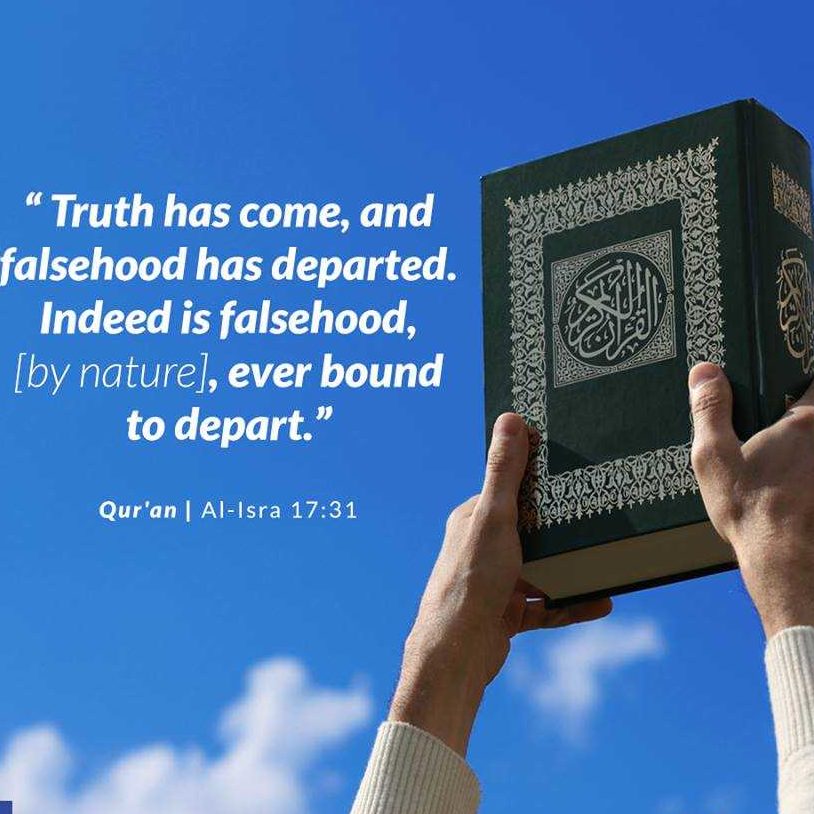
Conclusion:
It is obvious from above that the revelation mentioned in verses (53:2-4) of the Quran refers solely to the Quran which was revealed to Muhammad (Pbuh), the Messenger of God. What these glorious verses say is that the Quran was not the fabrication of Muhammad (Pbuh) as his enemies claimed! The word “It” (huwa) in 53:4 refers only to the Quran which was revealed by God to Muhammad (Pbuh) through the Angel Gabriel. The words in 53:2-4[47] do NOT refer to every word uttered by Prophet Muhammad (Pbuh).
Hazrat Abu Hurayrah (may Allah be pleased with him) narrated that the Holy Prophet (peace and blessings of Allah be upon him) prayed:
O my Lord! I have made a request in your service, so accept it and do not disappoint me. That is, I hope that my request will be granted and that request is that I am a human being, so I have caused any harm to the believer or if I had cursed him or harmed him or beaten him, then make all these things a cause of mercy for the believer, a means of purification from sins, and a means of nearness to you, so that you may give him nearness on the Day of Resurrection because of these things. (Mushkat: 2245, Bukhari and Muslim)
To be continued …… Prophet (Pbuh) said that he was “Given, something like the Quran”, hence it was concluded by scholars that Hadith is Revelation. This famous argument in support of Hadith as Secret Revelations (Wahi Khafi/ Ghair Matloo) will be analyzed, which cannot be not found elsewhere being totally original, in next Part-6.
References: https://bit.ly/Revelations-Wahi
[1] https://tanzil.net/#trans/en.wahiduddin/53:3
[2] [Sahih Muslim Book 042, Hadith Number 7147]
[3] [Musnad Ahmad: 10713, 10715, 10781,10966, 11160]
[4] https://quransubjects.wordpress.com/2019/12/03/faith/
[5] https://tanzil.net/#trans/en.sahih/7:203
[6] https://wp.me/scyQCZ-criteria,
[7] https://bit.ly/Hadith-Basics [اصول علم الحديث]
[8] https://wp.me/scyQCZ-forbid
[9] https://sunnah.com/bukhari/66/4
[10] http://www.equranlibrary.com/hadith/muslim/1705/622 . Tirmdhi 2906
[12] https://tanzil.net/#trans/en.sahih/7:203
[14] https://tanzil.net/#trans/en.wahiduddin/53:3
[16] https://corpus.quran.com/translation.jsp?chapter=37&verse=96
[17] http://2pm.co/demo/2500/6/59/
[18] https://tanzil.net/#trans/en.sahih/53:6
[19] https://islamicurdubooks.com/hadith/hadith-.php?tarqeem=1&bookid=1&hadith_number=7006
[20] تخریج دارالدعوہ: تفرد بہ المؤلف (تحفة الأشراف: ١٢٩٤٩)، وانظر: مسند احمد (٢/٣٤٠، ٣٦٠) (صحیح
[21] امام ترمذی حسن صحیح , تخریج دارالدعوہ: تفرد بہ المؤلف (تحفة الأشراف: ١٢٩٤٩)، وانظر: مسند احمد (٢/٣٤٠، ٣٦٠) (صحیح
[22] https://corpus.quran.com/wordbyword.jsp?chapter=53&verse=3#(53:3:1)
[23] https://trueorators.com/quran-tafseer/6/19
[24] https://tanzil.net/#trans/en.sarwar/7:203
[25] https://tanzil.net/#trans/en.sarwar/6:19
[26] https://tanzil.net/#36:69
[27] تخریج دارالدعوہ: تفرد بہ أبو داود، وانظر ما قبلہ (تحفة الأشراف: ١٨١٧٤) (صحیح)
[28] https://sunnah.com/abudawud:3583
[29] تخریج دارالدعوہ: صحیح البخاری/المظالم ١٦ (٢٤٩٨)، والشہادات ٢٧ (٢٦٨٠)، والحیل ١٠ (٦٩٦٧)، والأحکام ٢٠ (٧١٦٩)، و ٢٩ (٧١٨١)، و ٣ (٧١٨٥)، صحیح مسلم/الأقضیة ٣ (١٧١٣)، سنن ابی داود/ الأقضیة ٧ (٣٥٨٣)، سنن النسائی/القضاة ١٣ (٥٤٠٣)، سنن ابن ماجہ/الأحکام ٥ (٢٣١٧)، (تحفة الأشراف: ١٨٢٦١)، وط/الأقضیة ١ (١)، و مسند احمد (٦/٣٠٧، ٣٢٠) (صحیح)
[30] https://hamariweb.com/islam/hadith/sahih-muslim-6127/
[31] https://hamariweb.com/islam/hadith/sahih-muslim-2/
[32] ibid
[33] https://wp.me/pcyQCZ-4t , https://wp.me/pcyQCZ-4h , https://wp.me/pcyQCZ-4a,
[34] https://wp.me/scyQCZ-hadith
[35] https://wp.me/scyQCZ-criteria
[36] .اصول علم الحديث https://bit.ly/Hadith-Basics , https://wp.me/scyQCZ-criteria
[37] https://islamqa.info/en/answers/296825/there-is-no-contradiction-in-the-quran-a-response-to-apparent-contradictions
[38] اور حضرت جابر ؓ راوی ہیں کہ سرکار دو عالم ﷺ نے ارشاد فرمایا میرا کلام، کلام اللہ کو منسوخ نہیں کرتا اور کلام اللہ میرے کلام کو منسوخ کردیتا ہے اور کلام اللہ کا بعض کو منسوخ کرتا ہے۔ (مشکوٰۃ المصابیح : حدیث نمبر: ، 189) ( (سنن دارقطنی:۱؍۱۱۷)، Imam Sahifi Risla, https://www.mubashirnazir.org/ER/L0017-10-Risala.htm
[39] https://corpus.quran.com/translation.jsp?chapter=48&verse=2
[40] https://tanzil.net/#trans/en.sarwar/8:67
[41] https://aboutislam.net/reading-islam/about-muhammad/6-proofs-muhammad-couldnt-have-authored-the-quran/2/
[42] جو اکیلے اللہ چاہتا ہے (وہی ہوتا ہے)
عن عبد الله بن عباس -رضي الله عنهما- أن رجلا قال للنبي -صلى الله عليه وسلم-: ما شاء الله وشِئْتَ، فقال: «أجعلتني لله نِدًّا؟ ما شاء الله وَحْدَه». [إسناده حسن.] – [رواه أحمد.]
عبد اللہ بن عباس رضی اللہ عنہما سے روایت ہے کہ ایک شخص نے آپ ﷺ سے کہا جو اللہ چاہے اور جو آپ چاہیں (وہی ہوتا ہے)۔ آپ ﷺ نے فرمایا: ”کیا تم نے مجھے اللہ کے ساتھ شریک ٹھہرا دیا؟!“ (ایسا نہیں بلکہ یوں کہا کرو کہ) جو اکیلے اللہ چاہتا ہے (وہی ہوتا ہے)۔
[اس حديث کی سند حَسَنْ ہے۔] – [اسے امام احمد نے روایت کیا ہے۔]
[43] https://tanzil.net/#trans/en.sarwar/66:33
[44] (بخاری 7006# ومسلم 6190 ) (مشکوٰۃ المصابیح, حدیث نمبر: 5988)
[45] [Bukhari,7006 Muslim 6190]




